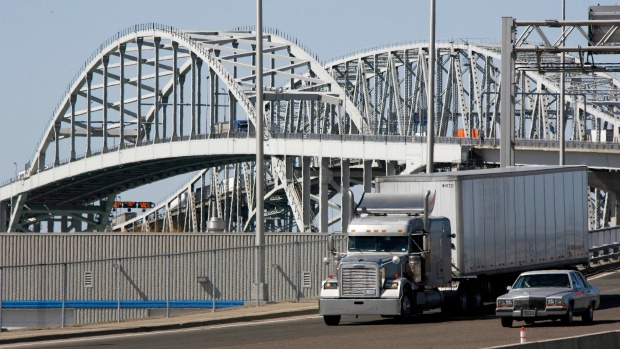Jul 3, 2018
U.S. auto tariffs could push Canada into recession by 2020, report says

Canada could slide into recession if Donald Trump carries through on his threat to slap tariffs on auto imports to the U.S., according to a new report by Scotiabank Economics.
The U.S. president re-raised the spectre of auto tariffs in a Fox News interview on Monday. “I have a feeling [Mexican President-elect Andres Manuel Lopez Obrador]’s going to be fine. And the reason is because if they’re not fine, I’m going to tax their cars coming into America, and that’s the big one,” Trump said.
The Scotiabank report, released Tuesday, labelled retaliatory trade action over autos as “unlikely,” but warned of dire consequences for Canada if it did happen.
“In what we still view as an unlikely event that the U.S. imposes auto tariffs and the rest of the world responds, a trade war would quickly unfold that would push Canada into recession in the second half of 2019 and into 2020,” Scotiabank Economics senior vice-president and chief economist Jean-Francois Perreault wrote in the research note.
“Growth would drop into mildly negative territory in the second half of 2019, and -1.8 per cent in 2020, a recession about half as deep as the post-2008 downturn.”
The Trump administration is reportedly considering auto import tariffs of as much as 25 per cent.
“As Canada’s second-largest export sector (after energy products), and the export sector that depends most heavily on NAFTA’s tariff preferences (96 per cent of exports to the US pass under NAFTA), auto tariffs would hit the Ontario economy particularly hard and dampen Canadian growth in 2019 and 2020,” Perreault added.
However, Perreault notes that the damage would not be contained to Canada alone.
“The tariffs’ extra costs and the ensuing impact on vehicle affordability would pull auto sales down from around record highs in both countries,” he wrote, looking at a potentially elongated tariff fight on both sides of the border.
“Sustained imposition of the mooted auto tariffs could force entire parts of the industry to be moved offshore given the intense integration of vehicle and parts production across Canada, the U.S., and Mexico.”
International trade lawyer Mark Warner of MAAW Law told BNN Bloomberg on Tuesday that a U.S. decision to impose auto tariffs would be “a real kick in the gut” to Canada’s economy.
“That’s why we’ve got to be very careful in how we escalate our response,” he said.
Perreault added that the move could also wind up costing Trump votes in two years’ time.
“American industry has made it clear that they don’t want this ‘protection,’” he wrote. “U.S. workers are already seeing the first layoffs linked to the Section 232 steel and aluminum tariffs. And our modelling implies that U.S. politicians from key Congressional districts would be expected to see even larger job losses just as they and the current president come up for re-election in 2020.”

